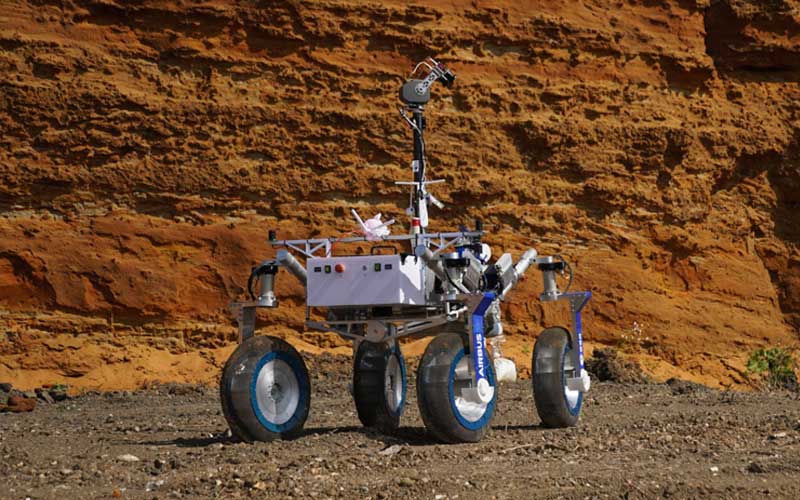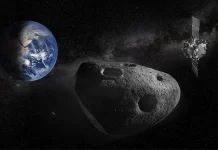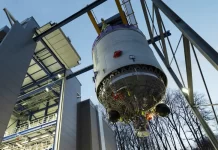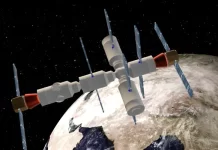
Airbus Defence and Space has successfully demonstrated autonomous sample collection capabilities using a four-wheeled rover called Codi.
Over the last three years, ESA and Airbus engineers have tested the capabilities of various rover designs in a quarry near Leighton Buzzard, Bedfordshire, in the UK. The aim of these test campaigns is to develop and master key technology that will be utilized in future rover missions to the Moon and Mars. According to Airbus, the quarry is used because it offers “a unique and dynamic landscape” that cannot be replicated in the company’s Mars Yard test facility in Stevenage.
In preparing for the recent three-week test campaign, teams set out to demonstrate that a rover could autonomously collect titanium sample tubes from the surface of a planetary body. The tubes utilized for the tests were replicas of those being deposited on the surface of Mars by NASA’s Perseverance rover.
During testing, a four-wheeled rover called Codi navigated across the quarry and stopped within 10 centimeters of the target sample. The rover then used a robotic arm to collect the sample and stow it safely. The entire operation was completed autonomously, without intervention from the engineers monitoring the rover’s progress.
In addition to demonstrating autonomous sample collection, a second rover called Charlie, which featured six wheels, was utilized to test a new navigation system that could speed up rover missions. Engineers aim to use the new system to improve the performance of ESA’s Rosalind Franklin rover, which is expected to be launched in 2028.




